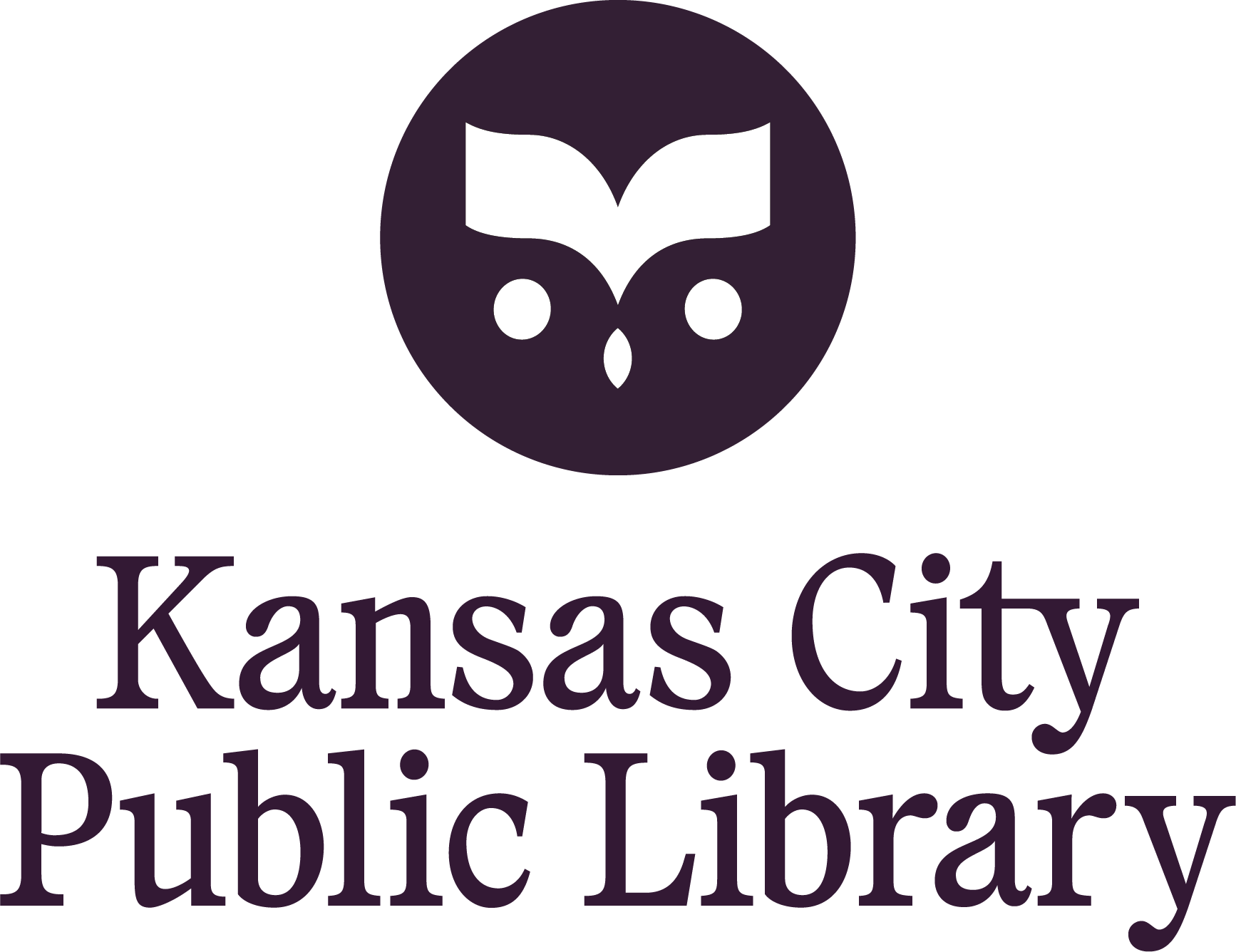The rise of women’s basketball: ‘Those building blocks came from Kansas City’
“What’s your KC Q” is a joint project of the Kansas City Public Library and The Kansas City Star. Readers submit questions, the public votes on which questions to answer, and our team of librarians and reporters dig deep to uncover the answers.
Have a question you want to ask? Submit it now »
by Ellen Hine | ehine@kcstar.com
The Tokyo Summer Olympic Games wrapped up this weekend. But did you know that Kansas City was actually the training ground for what was supposed to be the first U.S. women’s Olympic basketball team?
For this installment of “What’s Your KCQ?,” a partnership between The Star and the Kansas City Public Library, we respond to one reader’s question: What’s the history of the women’s basketball team, the Raytown Piperettes?
Before the 1972 passage of Title IX, which prohibits sex-based discrimination in education programs or activities that receive federal money, many American colleges and universities simply didn’t have teams for young women.
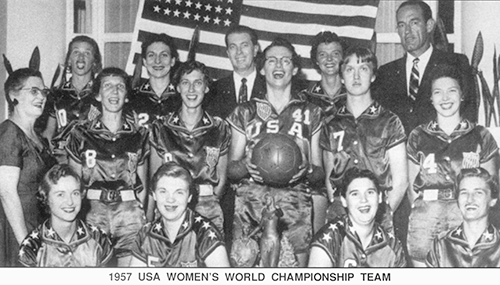
basketball team that won the 1957 World Championships in Brazil. | USA Basketball Archives
Amateur Athletic Union teams provided another option for women with a passion and talent for basketball. AAU teams were typically sponsored by businesses, although some represented colleges. Notable teams included the Hanes Hosiery team from Winston-Salem, North Carolina, which won three consecutive AAU national titles, and the Wayland Baptist Flying Queens from Plainview, Texas, who won 10 AAU titles and had a 131-game winning streak from 1953 to 1958.
The Raytown Piperettes were an AAU team sponsored by Leroy Cox, a local businessman and the first mayor of Raytown who helped lead the efforts to incorporate the city in 1950, and his wife. Cox owned J.L. Cox & Son, a pipe stringing company, which gave the Piperettes their name.
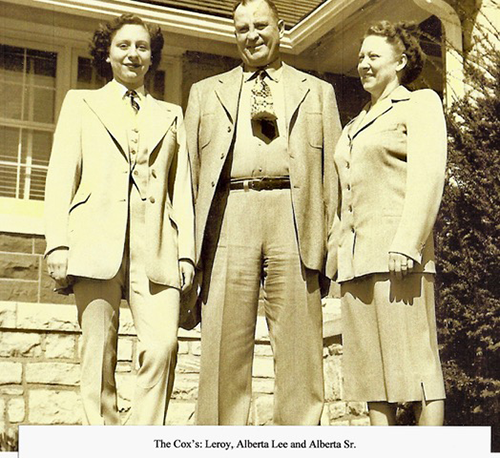
and in area AAU games as a teenager. She graduated from Raytown High School in 1949. | Raytown Historical Society
A love of basketball was part of the family. Leroy Cox’s wife, Alberta Smith Cox, had been the coach of a girls basketball team in Quincy, Kansas, according to Raytown Historical Society records.
But it was their daughter, Alberta Lee Cox, who was the avid player. Alberta Lee, whose friends, family and players affectionately called “Bert,” played on the Raytown High School team and in area AAU games as a teenager, according to a 1996 Raytown Dispatch article. After graduating high school in 1949, she would drive home from college on weekends to play for the Piperettes.
“Her two great loves were basketball and horses,” Cox’s cousin Nancy Galloway said in an interview with The Star. In addition to basketball, Cox also bred and competed in showing American Saddlebred horses for much of her life.
“She would command a room when she walked into it, her physical stature, her presence” Galloway said about her cousin, who she described as a second mother to her. “But she was very, very kind and very generous.”
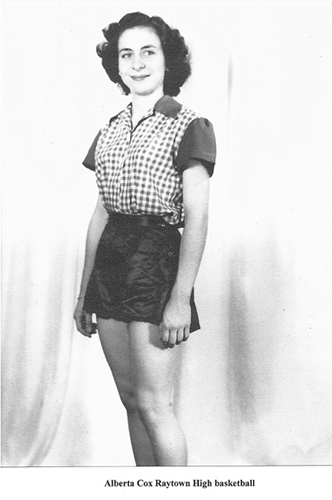
“There were people saying basketball is too hard on girls. Well, that’s bull,” Cox told the Dispatch in 1996. “They called me Babe sometimes and people would ask my father, ‘Aren’t you concerned about Babe playing all this ball?’
“He would say, ‘We know where she is during the day and when she comes home, she’s tired. We think it’s great!’”
Cox eventually earned a spot on the National AAU team, which she played on from 1955 to 1965, according to a 2002 profile of Cox by The Star. Among her many achievements, she was a five-time AAU All-American and represented the U.S. in the second and fourth FIBA World Championships for Women, now called the FIBA Women’s Basketball World Cup, in 1957 and 1964.
MEET COACH COX
After retiring as a player in 1965, Cox served as coach for the women’s national team, leading them in the 1967 and 1971 World Championships and the 1967 Pan American Games. She was also the first woman to coach a USA women’s basketball team internationally. Cox started coaching the Piperettes in 1963 when she was still a player, according to a 1965 story by The Star.
The Piperettes were consistently highly ranked in the AAU women’s basketball tournament, records indicate. The 1965 Star article announcing Cox’s retirement as a player states her team had placed third in the nation the two previous years.
A 1982 tribute to Leroy Cox in the Congressional Record states, “He sponsored the Raytown Piperettes women’s AAU basketball team which has ranked fifth or above nationally for 15 years and has also served as benefactor to numerous college students through the years.”
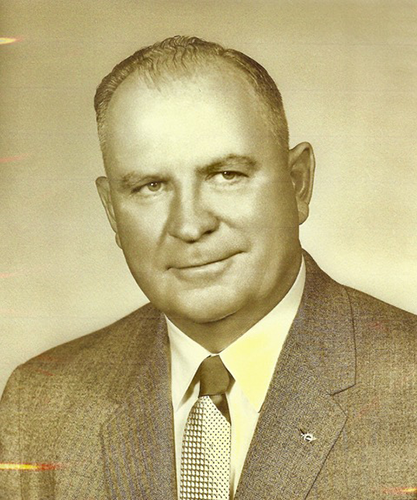
Cox owned J.L. Cox & Son, a pipe stringing company, which gave the Piperettes their name. | Raytown Historical Society
Multiple Piperettes also played at the international level. Thirteen Piperettes played for the U.S in women’s World Championships, and eight played in the Pan American Games.
One of those players was Marian Washington, who would go on to coach KU’s women’s basketball for 31 seasons and serve as the first Black woman to coach a U.S. international team. Washington competed at West Chester State University in Pennsylvania and helped her team win the first national title in college women’s basketball in 1969 at the National Invitational Intercollegiate Basketball Tournament.
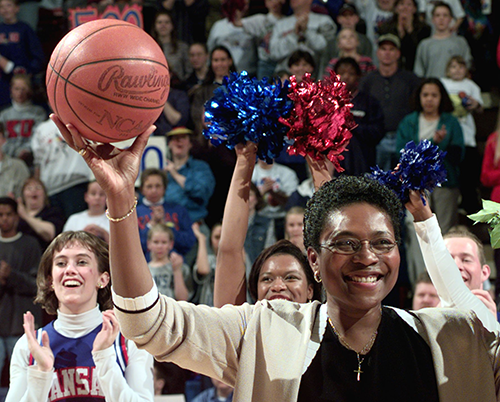
as she lifts her 500th career victory ball into the air following the teams victory over Oklahoma on
Feb. 20, 1999 in Lawrence, Kansas. | Kansas City Star
At the time, the national women’s team was scouting for players to travel to Mexico and South America, Washington said. She and a teammate received invitations to try out for the team after the tournament. Washington was one of the first Black women to play for the U.S. women’s national team along with Colleen Edwards, according to the book, “Just for Fun: The Story of AAU Women’s Basketball” by Robert W. Ikard.
Washington met Alberta Lee Cox for the first time at the national team tryout camp.
“She exuded confidence and intelligence — strength that you want women to have,” Washington said in an interview with The Star.
She said Cox was always sharply dressed, with four-inch heels and a flair to her dress. The coach had a philosophy to her game and knew how to communicate with her players to execute her vision. Her confidence inspired an immediate sense of respect from the women on the team.
“You just knew this was somebody who knew what she wanted and not somebody to play with,” Washington said about meeting Cox.
AN OLYMPIC VISION
Cox had a vision of what American women’s basketball could be. She fought for the women’s national team to have training camps, Galloway said.
“Because the men always had training camps,” Galloway said. “The women never did. And she was saying that the other countries are doing training camps, and they’re getting better and better.”
The first training camp for U.S. women’s basketball was held in 1967 in Blue Eye, Missouri, according to “Just For Fun.”
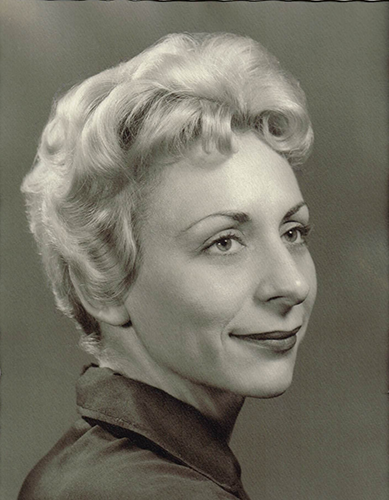
her father sponsored from the 1950s through the 1970s. | Courtesy of Nancy Galloway
When Washington tried out for the national team, women’s basketball was set to be introduced at the 1972 summer Olympics, she said, and Cox was going to be the USA women’s coach.
Cox decided she wanted to try to determine the group of women who would likely make up the Olympic team and have them come play for the Piperettes during the regular season, Washington said. It would give the team a chance to get to know each other and play together regularly.
Cox invited seven women from the U.S. team to come to Missouri, find jobs and play for the Piperettes. Washington was one of the seven. She moved to Kansas City and began teaching at the former Martin Luther King Junior High School while the team would come together and practice in Raytown.
“In addition to just playing for the Piperettes, we were trying to become the strongest women’s basketball team possible to represent the United States in the Olympics,” Washington said.
But women’s basketball didn’t debut at the Olympics in 1972. According to “Celebrating Women Coaches: A Biographical Dictionary,” by Nena Rey Hawkes and John F. Seggar, the Olympic Committe had too many events to add the women’s basketball to its summer schedule.
“Bert called us to her home and had us sit down,” she said. “I can remember seeing us in chairs and on the floor, and she was in the middle and broke the news to us.”
It was devastating, she said. When she left Cox’s house that night, she remembered looking straight ahead but barely being able to see.
CHANGES IN WOMEN’S BASKETBALL
During the 1974-75 season, Vickie Shelton was home from college and playing on another local women’s team when she went one-on-one against a Piperette in an AAU tournament at the Police Athletic League of Kansas City.
Shelton lost, but with some encouragement from her coach, she approached Alberta Lee Cox at the next game about being her team manager. When Cox asked her why she wanted to be the manager, Shelton told her she wanted to be around players like the Piperettes.
“I won’t let you be my manager, but I’ll let you come and try out for my team,” Cox told her.
“And, you know, I was just overwhelmed.” Shelton, now 69, told The Star. She said Cox had a stacked team, with players like Sheila Moorman, who went on to coach women’s basketball at James Madison University.
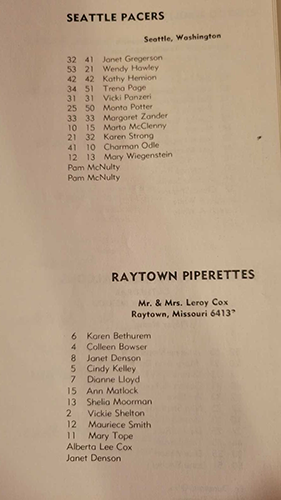
Shelton attended a Piperettes practice, and Cox told her to come to her home and pick up her red, white and blue Piperettes uniform.
Cox and her family helped to put many players through college and find work around Kansas City. Shelton said the team didn’t have a dedicated home gym, instead practicing and playing in school gyms where many of the players worked.
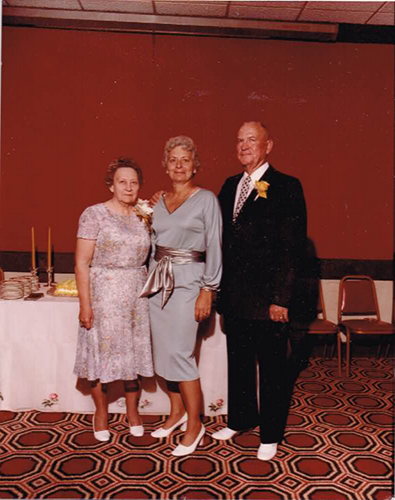
Cox and her family helped to put many players through college and find work around Kansas City. | Courtesy of Nancy Galloway
When the Piperettes went to the AAU national tournament in 1975 in Gallup, New Mexico, Shelton recalled Cox had the team get physicals at her family’s physician free of charge. The Piperettes didn’t have to pay for their airfare or hotel costs for the tournament. It was Shelton’s first plane trip.
“That didn’t happen for women’s college basketball for years,” Shelton said. ‘So it was something I never ever imagined athletics would do for me.”
The 1970s brought big changes for the state of women’s basketball. In 1971, the Association for Intercollegiate Athletics for Women was formed to govern women’s collegiate sports and hold national championships. Where men’s college basketball teams had the NCAA to run their tournaments, women’s teams now had the AIAW.
The next year, Title IX of the Education Amendments Act of 1972 was passed, which forbids sex-based discrimination in educational programs and activities that received federal funds. Under Title IX, women at most schools in America were now entitled to receive equal opportunities to participate in sports, athletic scholarships proportional to their participation and equal treatment to that of male athletes.
“Girls had more options,” Shelton said. “They didn’t have to go to an independent organization or an AAU organization to play. They could go to college and play and get a degree.”
Cox stopped coaching the Piperettes in the mid-70s as AAU women’s basketball was beginning to lose popularity but continued to show horses at the American Royal for decades. Of the many honors she received before her death in 2015, she was inducted into the Missouri Sports Hall of Fame in 1993 and was awarded the Jostens-Berenson Lifetime Achievement Award by the Women’s Basketball Coaches Association in 1991.
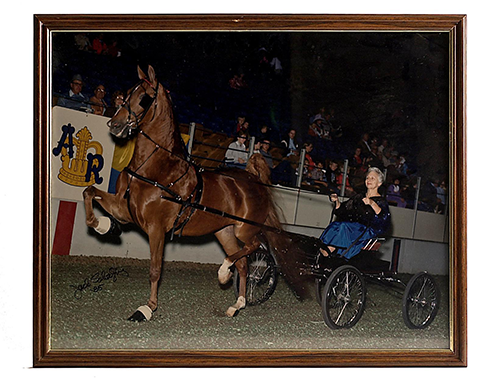
Galloway, Cox’s cousin, said Cox wanted people and the U.S. government to know that female athletes were worthy of the same treatment as men, and she was willing to take hits politically if she thought it was the right thing to do.
“I think she took great pride in everything she did,” Galloway said. “She wanted it done the right way. She wanted it done for the right reasons. And she wanted to promote, not just athletes, but specifically women athletes.”
When recalling the history of women’s basketball, Washington said, people don’t often discuss the AAU and AIAW and give them the credit they deserve.
“People need to understand the history of women’s basketball and be excited and proud of the fact that a lot of those building blocks came from Kansas City,” she said.
Submit a Question
Do you want to ask a question for a future voting round? Kansas City Star reporters and Kansas City Public Library researchers will investigate the question and explain how we got the answer. Enter it below to get started.

